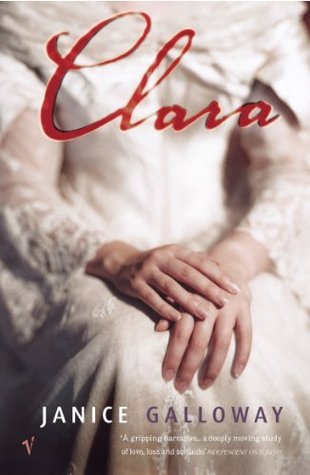What do you think?
Rate this book


Janice Galloway's new novel is based on the life of Clara Schumann: celebrated nineteenth-century concert pianist and composer, editor and teacher, friend of Brahms - who was also the wife of Robert Schumann, the mother of his eight children, and the woman who cared for him through a series of crippling mental illnesses.
Clara is a lyrical and vibrant account of two remarkable and highly dramatic musical careers, but primarily it is a novel about timeless, common things: about the inescapable influences of childhood, about creativity and marital life, about communication and silence, about how art is made and how art, in turn, may erode or save the life that nourishes it.
432 pages, Kindle Edition
First published January 1, 2002